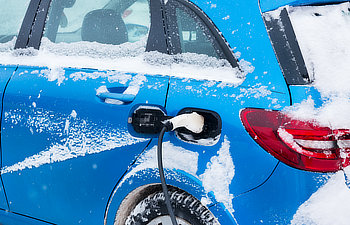
Electric vehicles (EVs) have been gaining popularity in recent years due to their eco-friendliness, low cost of maintenance and high efficiency. However, as with any new technology, there are still some challenges that need to be addressed. One such challenge is the impact of cold weather on EVs. Many EV owners have reported experiencing problems with their vehicles during the recent cold weather, leading some to wonder if their EV is a lemon.
So, do the recent cold weather problems with your EV mean it’s a lemon? The answer is, it depends. Let’s take a closer look at some of the cold weather issues that EV owners have reported.
Common Cold Weather Impacts on Electric Vehicles
One of the most common problems that EV owners face during cold weather is reduced range. This is because cold temperatures can cause the battery to lose some of its charge capacity. As a result, EVs may not be able to travel as far on a single charge as they could in warmer weather. However, this is not necessarily a sign that your EV is a lemon. It’s simply a limitation of the technology.
Consumer Reports reported on January 17, 2024, that “Running the cabin heater, seat heaters, defroster, and other accessories that combat the cold weather inside the car all sap range. This has a significant impact even before the temperature drops to freezing. In our tests, we found that the range starts to drop at 40° F. This may be a particular concern for EV drivers waiting in line for a public charger when their battery is low.”
Another problem that some EV owners have reported during cold weather is slower charging times. This is because the cold weather can cause the battery to become less efficient, which can make it take longer to charge. Again, this was a problem that made waiting in line for charging more of a problem in the recent extremely cold weather. Once again, this is not necessarily a sign that your EV is a lemon. It’s simply a limitation of the technology.
Is My EV a Lemon?
How do you know if your EV is a lemon? State Lemon Laws apply to all types of vehicles, including EVs. According to most of these laws, a vehicle is considered a lemon if it has a defect that cannot be fixed after a reasonable number of attempts by the manufacturer. However, it’s important to note that the lemon law only applies to defects that affect the safety, value or use of the vehicle. Reduced range and slower charging times during cold weather may or may not meet these criteria.
The recent cold weather problems with EVs across the United States in January 2024 are not necessarily a sign that your vehicle is a lemon. These issues may simply be limitations of the technology that need to be addressed by manufacturers. If you are experiencing problems with your EV, contact an authorized dealer and have them address the issue. If you encounter problems, contact Lemon Larry at (424) 404-9510 for help finding an experienced Lemon Law Attorney near you.








